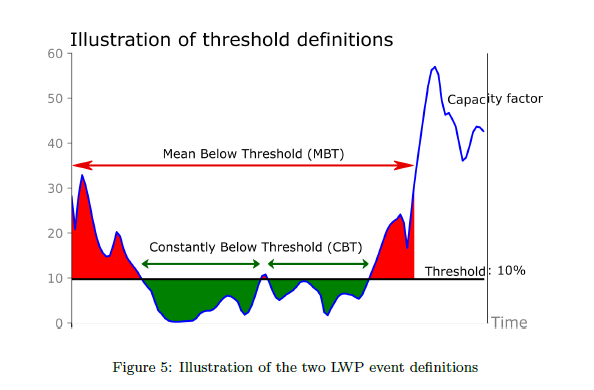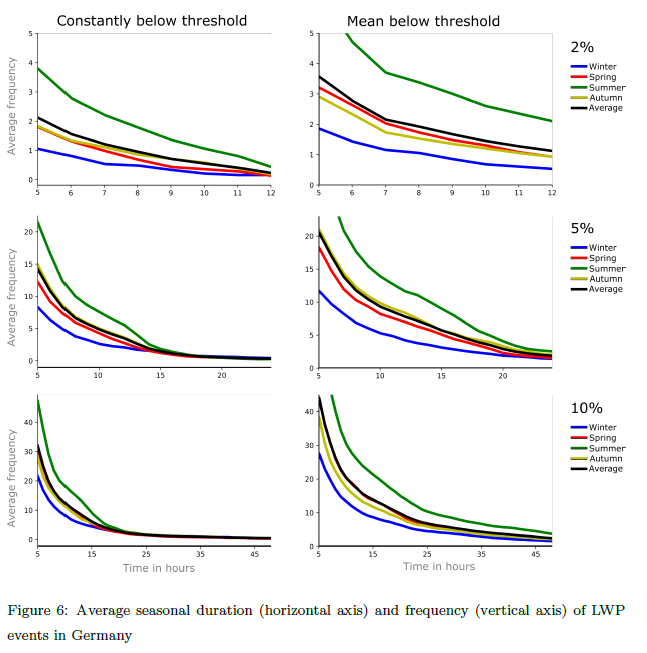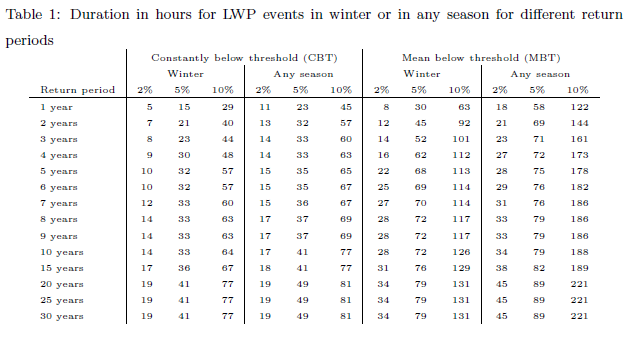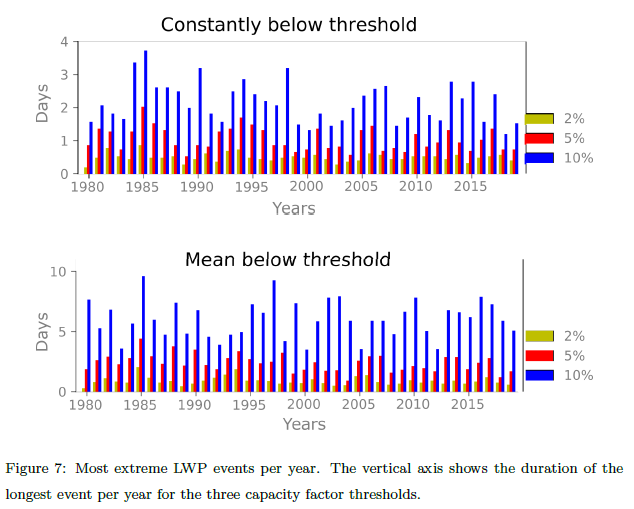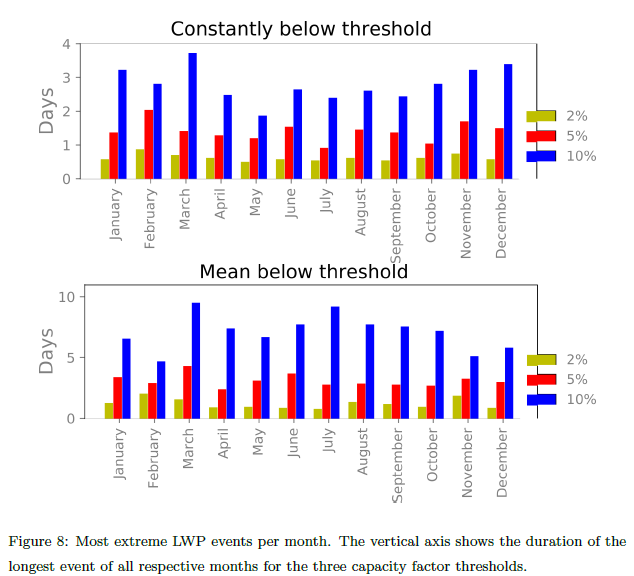I& #39;m super excited that our analysis on low- #windpower events in Germany was accepted for publication in Environmental Research Letters @IOPscience. Joint work with @nils_ohlendorf, now @MCC_Berlin, from @BMBF_Bund #Kopernikus project #P2X. Thread  https://abs.twimg.com/emoji/v2/... draggable="false" alt="⬇️" title="Downwards arrow" aria-label="Emoji: Downwards arrow">
https://abs.twimg.com/emoji/v2/... draggable="false" alt="⬇️" title="Downwards arrow" aria-label="Emoji: Downwards arrow">
https://doi.org/10.1088/1748-9326/ab91e9">https://doi.org/10.1088/1...
https://doi.org/10.1088/1748-9326/ab91e9">https://doi.org/10.1088/1...
1/ We analyze the frequency and duration of low-wind events for onshore #wind power in Germany, based on 40 years of MERRA-2 #reanalysis data and power curves, guided by #opensource, #opendata, #opensoftware & #openaccess principles.
2/ We propose two different definitions of low-wind-power periods: a narrower on with capacity factors constantly below a threshold (CBT), and a wider one looking at mean capacity factors (MBT).
3/ We find that low-wind-power events are less frequent in winter than in summer. Short events with a duration of up to around half a day may occur several times per year; very long events are much less frequent.
4/ Every year, a period of around five consecutive days with an average wind capacity factor below 10% occurs. Every ten years, this period increases to nearly eight days, and every twenty years to more than nine days. These durations decrease if only winter months are considered
5/ The most extreme yearly low-wind-power events vary substantially between years. The most extreme yearly event in the data occured in 1985 with a duration of nearly ten days.
6/ In a monthly perspective, the maximum duration of the most extreme low-wind-power events is distributed relatively evenly. That is, substantial extreme events may occur throughout the year, and also in winter months, despite a higher frequency of such events in summer.
7/ We conclude that energy modeling studies that only consider one historic weather year are likely to substantially underestimate the occurrence of low-wind-power events and related system implications. This is particularly relevant for analyses of long-term storage needs.
8/ From our analysis, we further conclude that concerns about a long #Dunkelflaute in German winters appear to be overrated, considering that the longest event with an average capacity factor below 10% and a ten-year return period in winter has a duration of only around five days
9/ We further recommend that policy makers or regulators develop a proper definition of the #Dunkelaute term, which is often used in a rather qualitative - and sometimes ideological and scaremongering - way.
10/ We did most of the analysis quite some time ago and presented earlier versions at @IA4EE and #Enerday conferences. But only during a research stay at @et_hub / @ClimateCollege I found the time to finish this paper. Thanks again, Malte @meinshausen, for inviting me!

 Read on Twitter
Read on Twitter